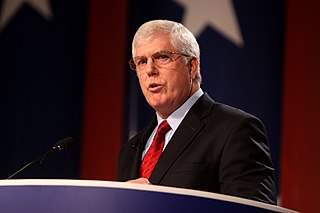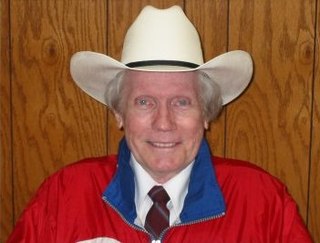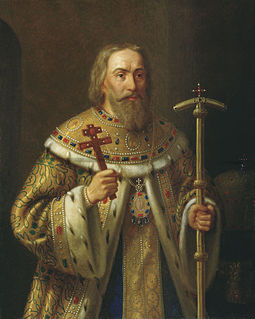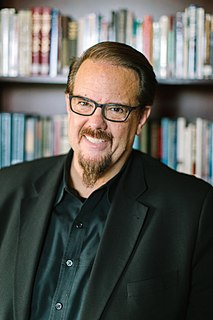A Quote by David Barton
To support its conclusion that 'this is a religious people... this is a Christian nation,' the Court paraded a veritable litany of precedents from American history: taken from Church of the Holy Trinity v. U.S.; 143 U.S. 457-458 (1892).
Related Quotes
If Jesus remained dead, how can you explain the reality of the Christian church and its phenomenal growth in the first three centuries of the Christian era? Christ's church covered the Western world by the fourth century. A religious movement built on a lie could not have accomplished that....All the power of Rome and of the religious establishment in Jerusalem was geared to stop the Christian faith. All they had to do was to dig up the grave and to present the corpse. They didn't.
Homosexuals now pervade and control American government at every level and branch. Thus, only those churches that support and promote the militant homosexual agenda enjoy religious freedom. Any church in America that dares to preach what the Bible says about soul-damning, nation-destroying moral filth of the vile homosexual beasts among us, loses all Constitutional guarantees of religious freedom and speech rights.
That the religious right completely took over the word Christian is a given. At one time, phrases such as Christian charity and Christian tolerance were used to denote kindness and compassion. To perform a "Christian" act meant an act of giving, of acceptance, of toleration. Now, Christian is invariably linked to right-wing conservative political thought -- Christian nation, Christian morality, Christian values, Christian family.
It has been said by church historians that in those periods of Christian history where renewal, revival, and awakening took place and the church was at its strongest, that coincidental with those periods in church history, there was a strong focus on the psalms in the life of God's people-particularly in the worship of God's people.
The Church is holy, although there are sinners within her. Those who sin, but who cleanse themselves with true repentance, do not keep the Church from being holy. But unrepentant sinners are cut off, whether visibly by Church authority, or invisible by the judgement of God, from the body of the Church. And so in this regard the Church remains holy.
Barna is correct when he writes, "After fifteen years of diligent digging into the world around me, I have reached several conclusions about the future of the Christian church in America. The central conclusion is that the American church is dying due to lack of strong spiritual leadership. In this time of unprecedented opportunity and plentiful resources, the church is actually losing influence. The primary reason is the lack of leadership. Nothing is more important than leadership."7
The American people need no course in philosophy or political science or church history to know that God should not be made into a celestial party chairman. To most of us, the manipulative invoking of religion to advance a politician or a party is frightening and divisive. The American people will tolerate religious leaders taking positions for or against candidates.
The adoration of Jesus in the Most Blessed Sacrament is the end of the Church Militant, just as adoration of God in His glory is the end of the Church Triumphant. A holy rivalry, a concert of prayer, a harmony of divine service should exist between the heavenly court and the Eucharistic court here below, between the adorer and his mother the Church.
In Britain, when someone says they do not believe in God, they stop going to church. In the U.S., many who may have doubts about Christian orthodoxy may continue to go to church. They do so because they assume that a vague god vaguely prayed to is the god that is needed to support family and nation.



































